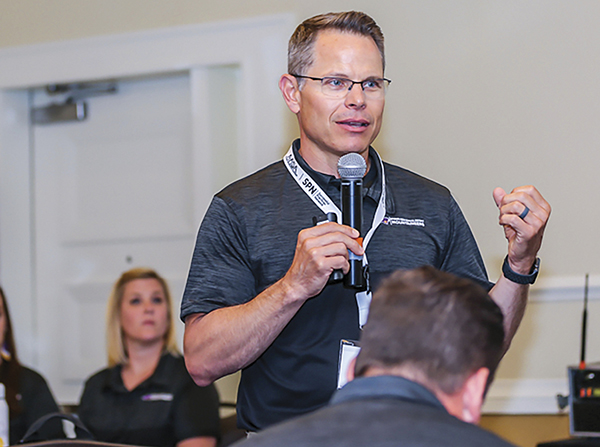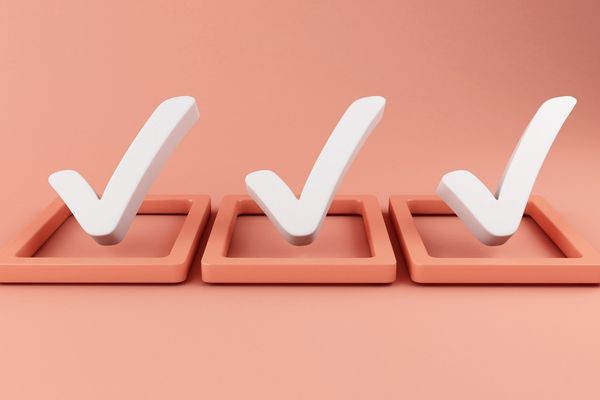Broadening Students’ Skills and Readiness Beyond School
December 01, 2022
LIGHTHOUSE SYSTEMS
By most measures, Ephrata Area School District in Pennsylvania’s Lancaster County was doing just fine. Its 4,200 students, 50 percent of whom are eligible for free and reduced-price lunch, “generally outperform the state averages on standardized test scores,” says superintendent Brian Troop.

That wasn’t good enough, which the district’s application to AASA’s Lighthouse program recognized. “Our world is rapidly changing, which increases the importance of skills and dispositions, (so) the district has been committed to providing skills to enable students to get there. That also means that a growth mindset should be modeled and promoted.”
The district completed a thorough self-assessment during the winter in 2015-16. “We did some hard self-reflection about the things that are most important and valued,” Troop says. Staff engaged in conversations with local business leaders to examine their future workforce needs.
The question that drove the district administration and local business leaders collectively was how well Ephrata students were prepared for life beyond high school in ways that had nothing to do with college preparedness. “More students are going toward the trades,” Troop says. “Success after high school doesn’t only come from college.”
This didn’t mean abandoning compliance with standardized testing requirements or reducing the emphasis on rigorous academics. Rather, the district’s revised approach meant expanding students’ skill sets and personal capacities in other areas. The superintendent identified the latter as collaboration, communication, empathy, emotional intelligence and creativity.
“We were (teaching these skills), but more hit or miss, not elevated to the degree we needed to be,” Troop says. “It’s our responsibility to produce students who are ready” for the workplace.
So from the minute students enter the Ephrata school system, they become part of a distinctive Life Ready Graduate program that informs how they’re taught as well as what they learn.
Mastering Dispositions
Educators give students ownership of their learning and responsibility for acquiring the skills and relevant content. Each grade has specific instructional maps and rubrics to assess how students apply such skills as cooperation, problem solving and teamwork, as well as how they demonstrate these skills. Not surprisingly, personal technology is significant in helping students manage how they learn.
“Leveraging technology tools,” Troop says, is integral to learning. The district is a 1:1 environment, allowing students in K-12 to use different applications and platforms, such as Schoology, Microsoft Teams, Office 365 and OneDrive, to personalize their learning as they move through the system. At each grade level, students complete what Ephrata calls “cornerstone projects” with at least one community partner.
Students who want to acquire industry credentials in trades like plumbing and HVAC work with a local business. Others might shadow nurses while completing semester-long internships and/or a two-year apprenticeship program.
“It’s about designing the path forward,” says Troop, who has led the Ephrata district since 2013. Critical to seeing what life after high school might look like are internships and shadowing experiences.
To help students succeed in the workplace of the future — no matter what that might look like — the district identified what it considers “dispositions” that students are expected to master. “Knowledge is taught and tested,” the superintendent says. “Skills are how they’re applied. Dispositions are the collection of values and character traits that don’t have a shelf life, like resilience, grit and mindset.”
All students receive lessons on financial literacy and civics, where they learn “how the local, state and national government works,” says Richard Hornberger, assistant superintendent of secondary education. Everyone also gains skills in technological proficiency, communication and collaboration, all the while preparing to master state academic standards. Ephrata’s graduates develop life skills such as personal awareness of physical and mental health and wellness, he adds.
Admitting Mistakes
These targets have required teachers to adjust how they instruct, so the district dedicated resources, including an on-call coach at every grade level who helps teachers develop strategies for different targets. Professional development focuses on how to identify the instructional model that delivers results.
“It’s about where to innovate and how to implement,” Troop says. “We want to have an environment where it’s safe for risk taking.” Underlying the work taking place in the classroom and in the community is a culture that explicitly cultivates acceptance of missteps.
“We model that when we make a mistake, we change direction,” says Jacy Clugston Hess, assistant superintendent of elementary education. “We build that culture of vulnerabilities.”
As in the workforce these students will ultimately join, Ephrata educators and staff model how students can most effectively function beyond graduation.
“We expect to stumble,” Troop says. “It’s about successes, failures and the lessons learned.”
Merri Rosenberg is a freelance education writer in Ardsley, N.Y.
Author
Advertisement
Advertisement
Advertisement
Advertisement

.png?sfvrsn=3d584f2d_3)
